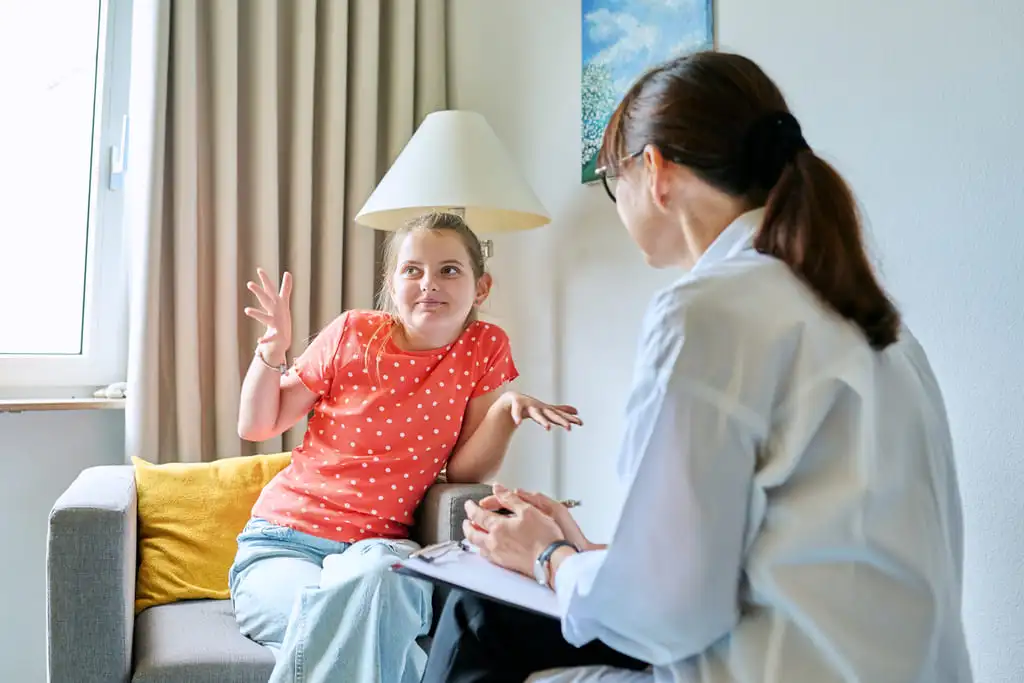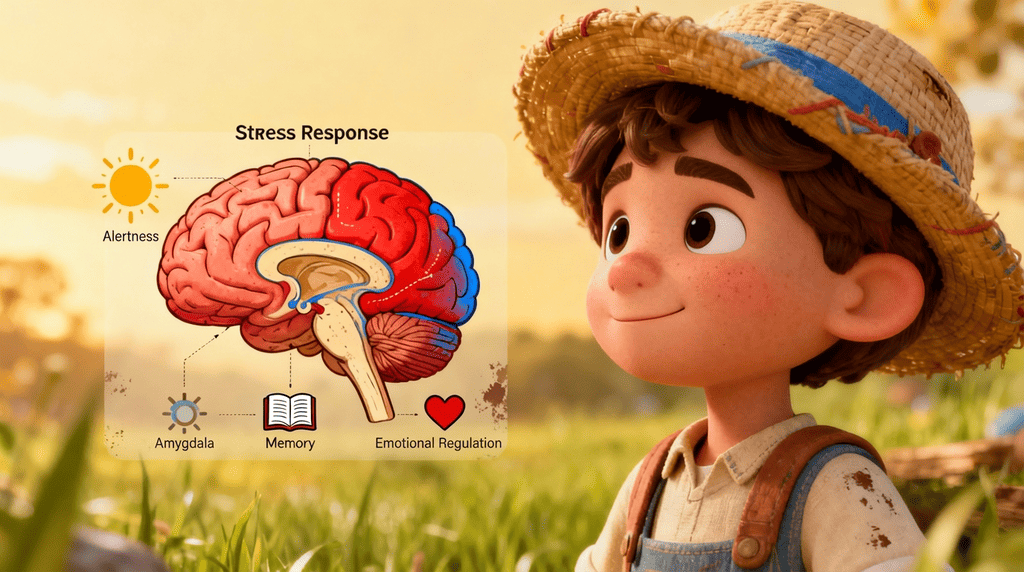Autism Spectrum Disorder (ASD) and its Impact on Communication Skills and Behaviour
Autism Spectrum Disorder is a neurological difference that affects social communication and behaviour. People journeying through life on the spectrum may face challenges in developing spoken language and social communication skills. These challenges can manifest in various ways, such as difficulty understanding body language and facial expressions, limited use of spoken language, and challenges with social interaction.
The spectrum nature of autism means that the severity and combination of these challenges can vary widely among autistic people.
For many autistic children and adults, these communication challenges can significantly impact their daily lives, making it harder to form relationships, express needs and desires, and participate fully in social situations.
Speech therapy, particularly when provided by qualified speech and language therapists, plays a crucial role in supporting autistic people to improve their communication skills. Through tailored language therapy and speech therapy services, autistic people can enhance their ability to interact with others, thereby improving their overall quality of life.
Communication Difficulties Experienced by Individuals on The Autism Spectrum
People on the autism spectrum often experience a range of communication challenges. Common challenges include struggles with social communication, such as initiating and maintaining conversations, understanding social cues, and interpreting body language and facial expressions.
Nonverbal communication can also be challenging, with some autistic people finding it difficult to use or understand gestures, eye contact, and other nonverbal signals. Additionally, understanding language nuances—such as sarcasm, idioms, and implied meanings—can be particularly challenging for autistic individuals, further complicating their ability to engage in typical social interactions and build relationships.

The Role of Speech Therapy in Autism
Speech therapy plays a vital role in supporting autistic people by addressing their unique communication needs. Speech and language therapists work closely with autistic children and adults to develop personalised therapy plans that target specific areas of difficulty.
Through an initial assessment, a language therapist identifies the individual’s strengths and areas requiring improvement. Therapy sessions are then designed to enhance spoken language, social communication skills, and the use of alternative communication methods when necessary.
Language therapy is particularly beneficial in helping autistic people improve their social communication skills. This includes teaching them how to initiate conversations, use appropriate body language, and understand the subtleties of verbal and nonverbal communication. For nonverbal children and people with more serious communication challenges, speech therapists may introduce augmentative and alternative communication (AAC) methods, such as picture exchange communication systems (PECS) or speech-generating devices. These tools can provide a crucial means of expression, enabling autistic people to communicate more effectively with those around them.
Discover how our team incorporates these methods as part of our Speech and Language Therapy practices.
What’s more, speech and language development programs can include role-playing, social stories, and group therapy sessions to practice social interactions in a controlled and supportive environment. By focusing on these skills, speech therapy not only improves the ability to communicate but also enhances overall social functioning and quality of life.
Improving Communication Skills
Improving communication skills involves a multi-faceted approach tailored to each person’s unique needs. Speech and language therapists use various techniques and strategies to help autistic children and adults enhance their spoken language, social communication, and nonverbal communication skills. These techniques may include structured language therapy activities, interactive play, and the use of visual aids to support understanding and expression. By consistently practising these skills in therapy sessions and everyday situations, autistic people can gradually develop more effective ways to communicate.
One of the key aspects of improving communication skills is fostering social communication and interaction. Speech therapy often incorporates exercises that focus on turn-taking, understanding and using appropriate body language, and interpreting facial expressions. For nonverbal children and people with limited speech, therapists might introduce alternative communication methods, such as sign language or communication boards, to facilitate their ability to express themselves. By enhancing these communication skills, speech therapy helps autistic people build stronger relationships and engage more fully in their communities.
Developing Nonverbal Communication Skills
For many autistic people, non-verbal communication skills are a crucial area of focus. A speech and language therapist works on enhancing these skills by teaching individuals how to use and interpret various forms of nonverbal communication, such as gestures, facial expressions, and body language. These nonverbal cues are essential for effective social interactions, as they often convey emotions and intentions that words alone cannot express. Through targeted therapy sessions, autistic people learn to recognise and respond to these nonverbal signals, improving their ability to connect with others.
Additionally, for nonverbal children or people with limited speech, developing alternative communication methods is vital. Language therapy may introduce tools like picture exchange communication systems (PECS), sign language, or speech-generating devices. These methods provide autistic people with alternative ways to communicate their needs, thoughts, and feelings, reducing frustration and enhancing their ability to interact with their environment. By focusing on both interpreting and using nonverbal communication, speech therapy helps autistic people develop more comprehensive communication skills, fostering better understanding and stronger social bonds.
Reducing Challenging Behaviours
Improved communication skills gained through language therapy can significantly reduce challenging behaviours in autistic people. Many behaviours that challenge, such as self-injury or tantrums, often stem from frustration and the inability to communicate needs or emotions effectively. By enhancing spoken language, social communication, and alternative communication methods, speech therapy provides autistic people with the tools they need to express themselves more clearly and appropriately.
As people with Autism Spectrum Disorder develop better communication skills, they can more easily convey their wants, needs, and discomforts without resorting to challenging behaviours.
For example, a child who learns to use a picture exchange communication system (PECS) or sign language can request a break or express hunger without becoming upset. Similarly, an adult who improves their social communication skills might better navigate social interactions and avoid misunderstandings that could lead to frustration. Overall, the ability to communicate effectively helps reduce the occurrence of challenging behaviours, leading to a more positive and supportive environment for autistic people and those around them.
Increasing Confidence
Improved communication skills gained through speech and language therapy can significantly boost the confidence of autistic people. As they develop better ways to express their needs, thoughts, and feelings, they experience more successful and meaningful interactions with others. This positive reinforcement encourages them to engage more actively in social situations and reduces feelings of isolation and frustration. For instance, an autistic child who can effectively communicate with peers and teachers is more likely to participate in classroom activities and form friendships, leading to increased self-esteem and a sense of belonging.
Moreover, by becoming more adept at using spoken language and alternative communication methods, autistic people gain a greater sense of control over their environment. This empowerment fosters a positive self-image and the confidence to tackle new challenges. Speech therapy’s focus on developing social communication skills, such as interpreting body language and understanding social cues, further enhances the ability to navigate complex social landscapes, reinforcing self-assurance in various settings.
Facilitating Independence
Speech therapy not only improves communication skills but also plays a crucial role in facilitating independence for autistic individuals. Effective communication is a foundational skill that enables autistic people to perform daily tasks, make decisions, and advocate for themselves. For example, an autistic adult who can clearly express themselves, their preferences and needs are better equipped to manage their personal care, seek employment, and participate in community activities. This level of autonomy is essential for leading a fulfilling and independent life.
Furthermore, speech and language therapists often work on practical communication skills that directly impact a person’s ability to live independently. These skills include asking for help, giving and following instructions, and using alternative communication tools when necessary. By focusing on these real-world applications, speech therapy ensures that autistic people can navigate various environments with greater ease and confidence. This increased independence not only enhances quality of life but also fosters a sense of self-reliance and accomplishment.
Promoting Social Integration
Speech therapy plays a vital role in promoting social integration for autistic people by enhancing their communication and social skills. Effective communication is key to building and maintaining relationships, and speech and language therapists focus on helping people living with Autism Spectrum Disorder improve their ability to interact with others. This includes teaching conversational skills, understanding and using appropriate body language, and interpreting social cues. As autistic people become more proficient in these areas, they find it easier to participate in social activities, form friendships, and integrate into their communities.
Additionally, speech therapy autism support often involves group sessions where autistic people can practice their social skills in a supportive and structured environment. These sessions provide opportunities to engage with peers, share experiences, and receive feedback on their communication efforts. By fostering these positive interactions, speech therapy helps autistic people build a network of social connections and develop a sense of belonging. This enhanced social integration not only improves overall quality of life but also contributes to a more inclusive and understanding society.
Autism Support with Nurseline Community Services
At Nurseline Community Services, we are dedicated to providing comprehensive support for autistic people through a range of specialised services, including speech and language therapy.
Our team of experienced speech and language therapists is committed to helping autistic children and adults improve their communication skills, thereby enhancing their ability to interact with others and participate fully in their communities. We understand the unique challenges faced by autistic people and tailor our therapy sessions to meet each person’s needs.
Our therapists work closely with each person to develop a customised therapy plan that addresses their strengths and areas for improvement. We offer services at multiple locations, ensuring high-quality support is accessible to families across the region. Our goal is to empower autistic people to achieve greater independence, reduce behaviours of concern, and increase their confidence through effective communication strategies.
We invite you to learn more about how our services can benefit autistic people experiencing these challenges. Let us help you discover the full potential of effective communication and social integration for a brighter future.




